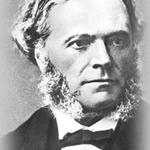
César Franck Tour Dates and Upcoming Concerts
Welcome to the official artist page for César Franck – your premier destination for
the latest concert tickets, tour announcements, and exclusive shows near you. Dive into
the music, explore the artist’s reviews and photos, and never miss another concert
moment. Stay updated, stay connected, and be the first to grab tickets for an
unforgettable musical experience.
On tour
Yes
Followers
4,147
Category
Classical
About César Franck
César-Auguste-Jean-Guillaume-Hubert Franck (December 10, 1822 – November 8, 1890), a composer, organist and music teacher of Belgian origin, was one of the great figures in classical music in France (and the world) in the second half of the 19th century.
César Franck was born in Liège, Belgium. His father had ambitions for him to become a concert pianist, and he studied at the conservatoire in Liège before going to the Paris Conservatoire in 1837. Upon leaving in 1842 he briefly returned to Belgium, but went back to Paris in 1844 and remained there for the rest of his life. His decision to give up a career as a virtuoso led to strained relations with his father during this time.
During his first years in Paris, Franck made his living by teaching, both privately and institutionally. He also held various posts as organist: from 1847-1851 he was organist at Notre Dame de Lorette, and from 1851-1858 he was organist at St. Jean-St. Francois. During this time he became familiar with the work of the famous French organ builder Aristide Cavaillé-Coll, and he also worked on developing his technique as an organist and improviser.
In 1858, he became organist at the recently-consecrated basilica of Sainte-Clotilde, where he remained until his death. Here he began to attract attention for his skill as an improviser. His first set of organ compositions, however, was not published until 1868, when he was 46 years old, though it contains one of his finest organ pieces, the "Final in Bb". From 1872 to his death he was professor of Organ at the Paris Conservatoire. His pupils included Vincent d'Indy, Ernest Chausson, Louis Vierne, and Henri Duparc. As an organist he was particularly noted for his skill in improvisation, and it is on the basis of only twelve major organ works that Franck is by many considered the greatest organ composer after J. S. Bach. His works were some of the finest organ pieces to come from France in over a century, and laid the groundwork for the French symphonic organ style. In particular, his "Grande Piece Symphonique", a 25-minute work, paved the way for the organ symphonies of Widor, Louis Vierne, and Marcel Dupré.
Many of Franck's works employ "cyclic form," a method of achieving unity among several movements in which all of the principal themes of the work are generated from a germinal motif. The main melodic subjects, thus interrelated, are then recapitulated in the final movement. His music is often contrapuntally complex, using a harmonic language that is prototypically late Romantic, showing a great deal of influence from Franz Liszt and Richard Wagner. In his compositions, Franck showed a talent and a penchant for frequent, graceful modulations of key. Often these modulatory sequences, achieved through a pivot chord or through inflection of a melodic phrase, arrive at harmonically remote keys. Indeed, Franck's students report that his most frequent admonition was to always "modulate, modulate." Franck's modulatory style and his idiomatic method of inflecting melodic phrases are among his most recognizable traits. The key to his music may be found in his personality. His friends record that he was a man of utmost humility, simplicity, reverence and industry. Much of Franck's music is deeply serious and reverential in mood, often joyful, passionate or mysterious, but almost never light-hearted or humorous.
Unusual for a composer of such importance and reputation, Franck's fame rests largely on a small number of compositions written in his later years, particularly his Symphony in D minor (1886-88), the Symphonic Variations for piano and orchestra (1885), the Prelude, Choral and Fugue for piano solo (1884) and the Sonata for Violin and Piano in A major (1886). The Symphony was especially admired and influential among the younger generation of French composers and was highly responsible for reinvigorating the French symphonic tradition after years of decline. One of his best known shorter works is the motet setting Panis Angelicus which was originally written for Tenor solo, but is more often heard in the Soprano register these days.
In 1890, Franck was involved in a serious traffic accident. It was after this accident that he wrote three masterful Chorals for organ. Franck died as a result of complications from the accident very shortly after finishing the Chorals. He was interred in the Cimetière du Montparnasse in Paris.
Franck's organ works have been recorded, in whole or in part, by many famous organists, including Jean Langlais, Marie-Claire Alain, Jeanne Demessieux, and Catherine Crozier.
César Franck exerted significant influence on music. First of all, there was chamber music which he help to renew and reinvigorate. And then there was the principle of the cyclic form which he developed and demonstrated in his music. Franck's influence was also due in part to his nature as "a man of utmost humility, simplicity, reverence and industry." Claude Debussy and Maurice Ravel remembered and employed the cyclic form, although their concepts of music were no longer the same as Franck's.
Follow on Bandsintown
Genres
Classical
Similar Artists On Tour
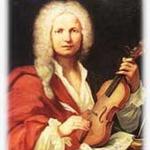
Antonio Vivaldi

London Symphony Orchestra

Berliner Philharmoniker
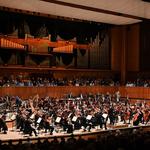
Philharmonia Orchestra
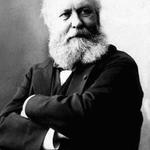
Charles-François Gounod

Royal Philharmonic Orchestra
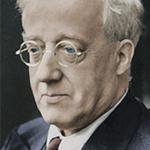
Gustav Holst
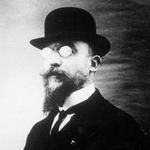
Erik Satie
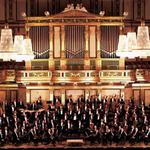
Wiener Philharmoniker
César Franck Tour Cities
Frequently Asked Questions About César Franck
Concerts & Tour Date Information
Is César Franck on tour?
Yes, César Franck is currently on tour. If you’re interested in attending an upcoming
César Franck concert, make sure to grab your tickets in advance. The César Franck tour
is scheduled for 1 dates across 1 cities. Get
information on all upcoming tour dates and tickets for 2025-2026 with Hypebot.
How many upcoming tour dates is César Franck scheduled to play?
César Franck is scheduled to play 1 shows between 2025-2026. Buy
concert tickets to a nearby show through Hypebot.
When does the César Franck tour start?
César Franck’s tour starts Oct 29, 2025 and ends on Oct 29, 2025.
They will play 1 cities; their most recent concert was held in
Amsterdam at Muziekgebouw aan 't IJ and their next upcoming concert
will be in at .
What venues is César Franck performing at?
As part of the César Franck tour, César Franck is scheduled to play across the following
venues and cities:
2025 Tour Dates:
Oct 29 - Amsterdam,
NH @ Muziekgebouw aan 't IJ